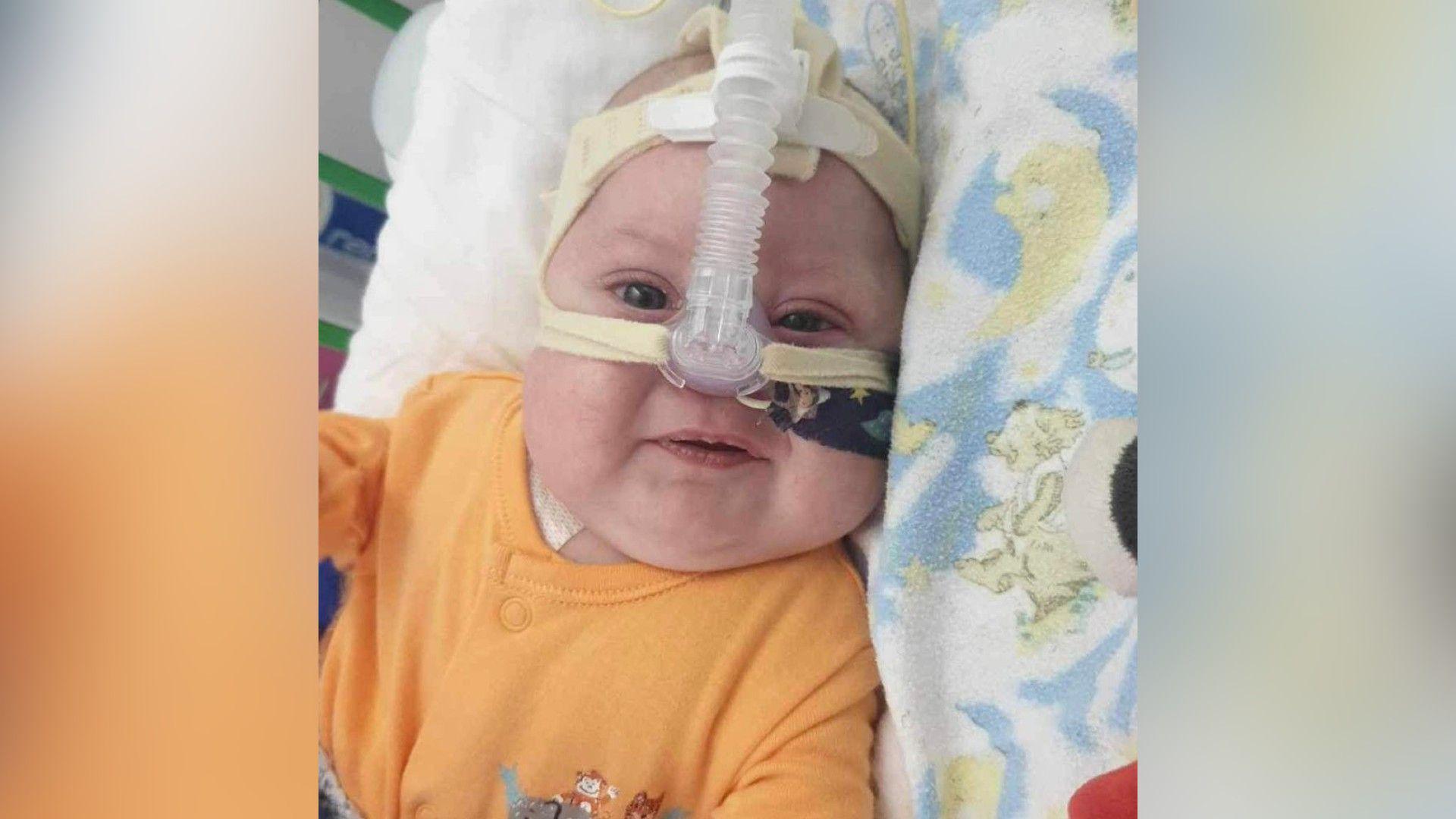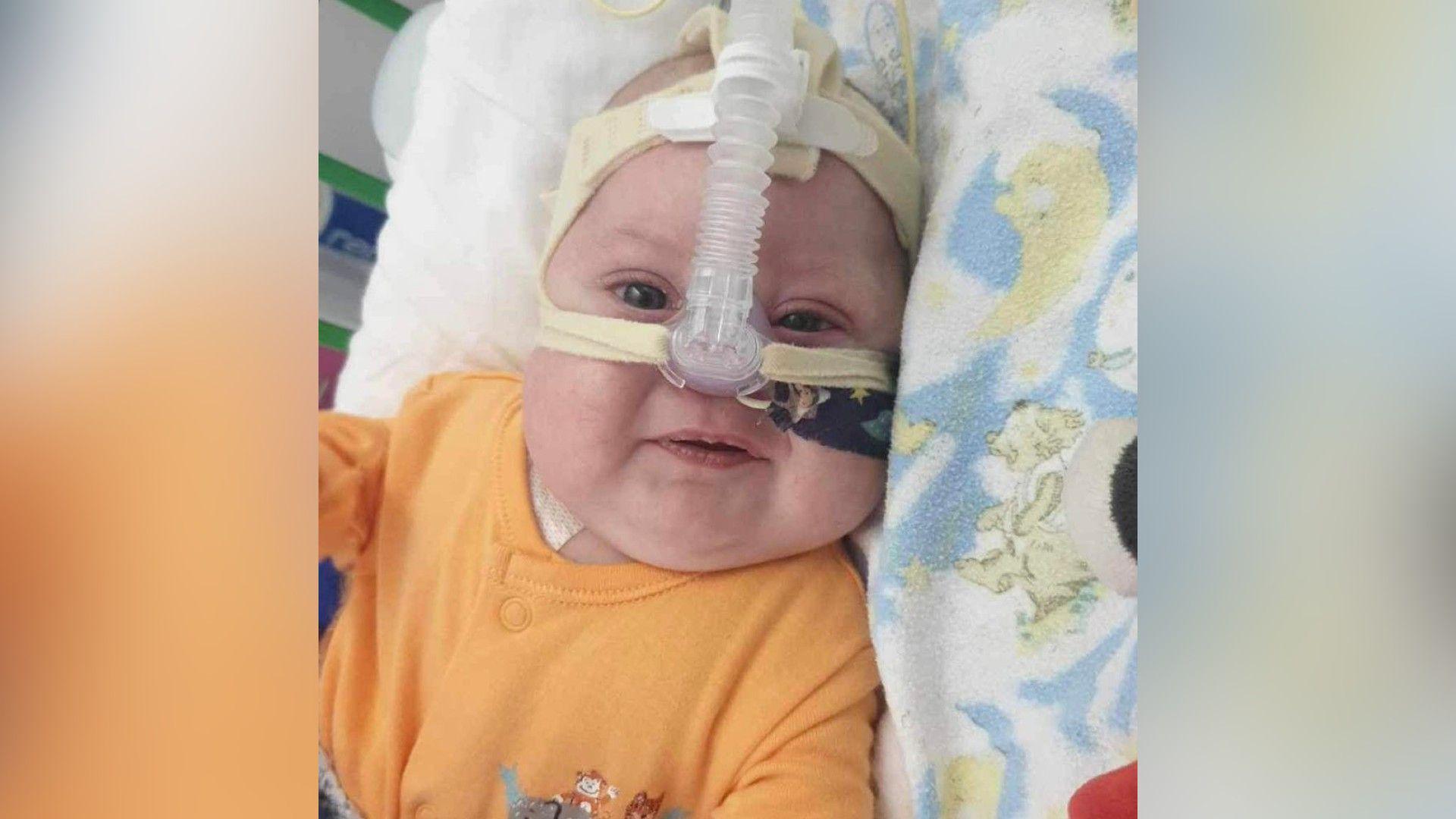Brain injury did not cause baby's death - inquest

Joshua Hughes was eight months old when he died in October 2023
- Published
Severe brain damage sustained by a premature twin while in the care of a children’s hospital was preventable but did not lead to his death, a coroner has concluded.
Joshua Hughes was born in Barnsley on 17 January 2023, but struggled with numerous complex medical issues as a result of being born 15 weeks early.
While a patient at Sheffield Children’s Hospital, Joshua suffered a brain injury after his blood pressure was not consistently monitored, an inquest heard.
Sheffield Children’s NHS Foundation Trust apologised for the failings, adding it had taken "immediate action" to address the lessons raised.
Sheffield's Medico-Legal Centre previously heard Joshua suffered from severe chronic lung disease when he arrived at the paediatric intensive care unit at the hospital on 9 May 2023.
On 25 June, he underwent surgery to have a new intravenous feeding line fitted, during which he suffered a two-minute cardiac arrest.
'Poor communication'
Giving evidence at the inquest, medical professionals stated the post-surgery handover lacked detail and failed to highlight a risk of further complications.
Concerns were raised overnight when his blood pressure dropped significantly, the hearing heard, but action to address this was not immediately taken.
Assistant coroner Hannah Berry accepted there had been confusion around the measurement of his blood pressure target, which allowed it to drop dangerously low.
“It was preventable and would not have occurred had it been treated in a timely manner,” she told the inquest.
“Much of this was due to poor communication between teams.”
Doctors agreed the injury did not contribute to Joshua’s death on 9 October, but highlighted the impact it would have had later in life.
This included a high risk of visual impairment and a severe effect on cognitive skills.
Ms Berry said she was satisfied the brain injury did not impact subsequent treatment or Joshua’s respiratory function, which ultimately caused his death.
She added: "The brain injury did impact on his quality of life, and that was exceptionally difficult for Joshua and his family.”
She said the hospital trust had put in “extensive measures” to address the issues identified following Joshua’s death.
'Fight in his memory'
Joshua's mother, Kimberley Bradder, said learning that her son had suffered preventable pain had been “heartbreaking”.
“Losing Joshua has left a void in our lives that can never be filled, and I will forever mourn the moments we should have had together as a family,” she said.
“I will continue to fight in his memory, so no other family has to experience the pain we have endured.”
The trust's medical director, Dr Jeff Perring, said: "We are sorry that the care Joshua received fell below the high standards we set ourselves and that Joshua’s family could expect of us.
"We acknowledge that our actions caused Joshua to have brain damage and whilst this was not found to contribute to his death, we have taken this very seriously."
He added: “Our internal investigation showed that there were lessons to learn from Joshua’s care and we have taken immediate action to address these."
Listen to highlights from South Yorkshire on BBC Sounds, catch up with the latest episode of Look North or tell us a story you think we should be covering here, external.
Related topics
- Published6 September 2024
